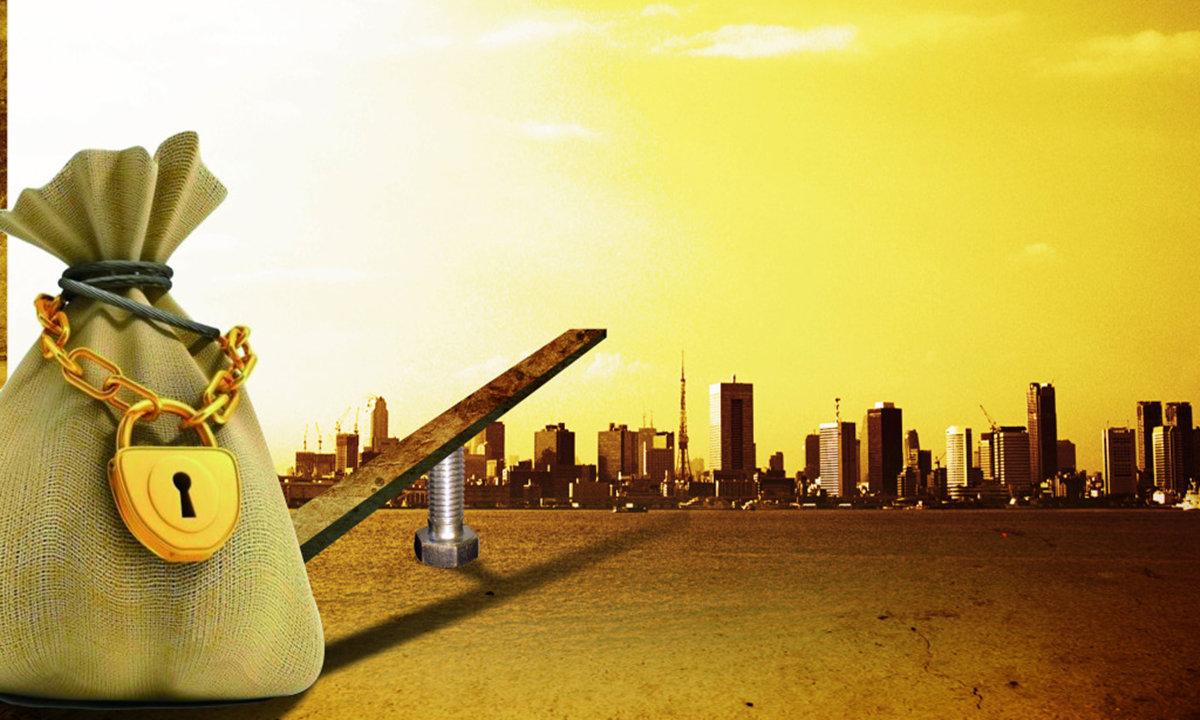Dialogue Mike Novogratz: What mistakes did Galaxy Digital make in this bear market?
Author: Jen Wieczner
Original Title: 《Mike Novogratz on His Big Crypto Mistake and What's Ahead for Bitcoin》
Translation: Moni, Planet Daily
Mike Novogratz was once a seasoned traditional hedge fund manager, but he found real success after entering the crypto industry. As the CEO of blockchain investment firm Galaxy Digital, Mike Novogratz built his reputation and credibility in this field.
When this billionaire was asked about his greatest interest, Mike Novogratz candidly stated that LUNA was his favorite token. In January 2022, when LUNA's price soared to $100, Mike Novogratz couldn't hide his excitement and got a tattoo of a howling wolf on his arm to express his thrill.
However, who would have thought that in less than six months, LUNA would experience an "epic zeroing out," with a market cap of $50 billion evaporating in an instant? As a former superfan of LUNA, Mike Novogratz couldn't hide his frustration when discussing the collapse and preferred not to mention his past support for LUNA. However, it should be noted that during last year's crypto boom, Mike Novogratz did warn crypto newcomers to proceed with caution and suggested they could allocate some funds to real estate instead of pouring everything into the crypto market.
Not just LUNA, in fact, the downturn sweeping the entire cryptocurrency market caused significant losses for Galaxy Digital, and of course, Mike Novogratz himself was not spared (in recent days, the price of BTC dropped from nearly $70,000 to below $20,000, while ETH, the second-largest cryptocurrency, fell from nearly $5,000 to below $1,000, significantly shrinking Mike Novogratz's net worth).
Additionally, in this wave of collapse, DeFi was one of the most severely affected verticals. For example, the crypto lending platform Celsius was one of them; after facing a severe financial crisis, it suspended all withdrawals, trading, and transfers between accounts due to concerns about insufficient liquidity.
It is no exaggeration to say that the collapse in 2022 led to significant casualties among cryptocurrency funds and gradually affected the entire industry, reminiscent of the impact of the 2008 financial crisis on Wall Street, as if history were repeating itself.
As mentioned at the beginning, Mike Novogratz was a seasoned hedge fund manager who had been through the grind on Wall Street for so long that he was very familiar with such situations, yet he still admitted that this drop was very unexpected and that he had taken on too much risk during this period. In a recent interview, Mike Novogratz reflected deeply on the events of this experience; despite his inability to hide his disappointment, he did not lose confidence, stating that he would learn from the experience and prepare for the next bull market.
Q: Many people will say in hindsight, "We told you cryptocurrency is a scam." But is that really the case?
A: I have to say that we need to be objective in our views. If you bought Zoom stock or BTC when the COVID-19 pandemic first started, you would have doubled your money with BTC by now, while Zoom would have left you with nothing. I think this is what people find hard to understand. In fact, for many asset classes, we hope to gain profits through speculation, but first, we must learn to distinguish between good and bad, and not throw the baby out with the bathwater. When we want to discard certain unwanted things, we must remember not to lose the valuable parts of them.
Therefore, I believe that as a macro asset, BTC will not disappear, and Web 3 will not disappear either. On the contrary, in the future, we will spend more time in the metaverse, and platforms will continue to sell digital assets. For digital assets to have value, they must be unique, and this must be built on the foundation of blockchain.
Given this, is there still controversy over the crypto ecosystem? The answer is certainly yes, because it is a remarkable mechanism. Once you own a token in a certain ecosystem, you can earn profits through others who buy the same token, and those in the same ecosystem essentially form a tribe.
Today, I am fond of some ecosystems while being disliked by others because I critique these ecosystems. When I am not optimistic about a certain ecosystem, they develop a hostile sentiment towards us. Therefore, to this day, I still face attacks for expressing my true thoughts. But I firmly believe that "picking sides" cannot influence long-term significant investment decisions.
Q: How do you view this cryptocurrency crash? Is it different from the past—like in 2018 or 2014? How do you understand this?
A: Just like the theme song from "Beauty and the Beast," "Tale as old as time," it is clear that the assets we have are all bubble-laden, but when they crash, you always find that people have added various strange and numerous leverages. And even if you know that many people have leveraged, when the crash happens, you still don't want to believe that those people are actually gambling.
I hope that the crypto market crash in June was the worst-case scenario, and if I knew that inflation issues might worsen in the next two quarters, I would definitely have more confidence in cryptocurrencies. However, if you have sell orders, it likely means there will be a sell-off. Previously, Ethereum had dropped to $890, and Bitcoin to $17,900. I believe the risks in cryptocurrencies are relatively low; we may have a Great Depression, but that is not scary for cryptocurrencies. Instead, it is the macro economy, like the stock market, that is less favorable.
Q: Do you think cryptocurrencies are not bad? Why do you come to this conclusion?
A: I am not saying that cryptocurrencies are not bad, but they do need to take a pause. We know that Bitcoin is the "horse" driving the cryptocurrency industry forward, and during the crypto winter, Bitcoin remains the only scarce asset. The Federal Reserve must slow down its money printing because if it doesn't, economic growth will slow down. We know that there is still inflation pressure in the U.S. The cryptocurrency market will decline, and Bitcoin will also decline, but many other verticals in the crypto industry are developing.
Q: Are you still worried about cryptocurrencies? We know that some recent black swan events in the crypto industry have caused ripple effects, such as Three Arrows Capital, which seems to have collapsed and created broader effects.
A: I think people at least understand the situation. Time will solve these problems; they will either go bankrupt or be sold. Just like after 2008 in the financial industry, we had Lehman's claims, hedge funds, and their assets being acquired; similar situations will occur in the crypto industry.
However, everyone's biggest concern may be whether the stablecoin Tether will collapse. What I can say now is that there is no need to worry too much. For many different reasons, Tether is still quite stable (although they do not have as much transparency as we would like—after all, everyone wants more transparency). However, I hope Tether can at least provide 90-100% liquidity assurance, although this does not mean you will face forced liquidation, but it may trigger market fear, as we saw in June.
Q: Coinbase seems to be having trouble lately, and people are worried that the company might go bankrupt. Do you think this poses a threat to the crypto industry as well?
A: Coinbase has a lot of cash on its balance sheet, but they also have high expenses. Therefore, my guess is that Coinbase CEO Brian Armstrong will significantly reduce expenses in the next one or two quarters. They have a strong brand. However, I think Coinbase is currently facing the worst problem: some traditional large consortiums want to acquire them. In my view, Coinbase is like the "underlying asset" of the crypto industry, so I don't think they are willing to be acquired; instead, they will continue to try to operate independently. However, if the crypto winter lasts too long and is too brutal, someone will step in and acquire them.
Q: The frightening thing about this crypto market crash is that some companies or protocols that have already collapsed were highly regarded in the industry. Of course, there is Luna, and also Celsius, a multi-billion dollar company that offered relatively generous interest payments to consumers. Did you see these?
A: Relatively speaking, I am more concerned about the macro environment. I hope Bitcoin can stay between $30,000 and $50,000. Galaxy Digital has not invested in any credit protocols like Celsius, although we previously invested in their competitor BlockFi, but we exited over a year ago because I was not optimistic about that business model. Of course, Galaxy Digital sometimes plays the role of a large investor, such as in Terra, but we actually reduced our holdings in advance—that's what we do in most cases.
In hindsight, for example, Luna, it simply could not provide people with 18% interest like Anchor did. Their ecosystem developed too quickly before they expanded other use cases, and that is the problem. I think this is a lesson for the crypto industry. During the previous bull market, the printing press started running, and everything was rising. Speculation frenzies over baseball cards, fine wine, watches, and tech stocks also occurred in the crypto space. I believe that the speculative frenzy has basically ended now.
Q: Is DeFi over as well? Will this market crash raise more doubts among people?
A: To some extent, regulators will step in. Celsius and BlockFi are like black boxes for investors putting in money, but they are not decentralized financial systems on the blockchain. Investors do not know what the leverage is unless you are behind the scenes. You also do not know their asset-liability mismatches, short-term borrowing, and long-term borrowing issues, which is why you can die suddenly in the market. Similar situations also happened in 2008 with European banks, Lehman Brothers, and Merrill Lynch, which took on excessive leverage during the bull market and thought they were geniuses, and in the end, everyone knows what the outcome was.
However, Luna and Terra are a bit different; they are completely transparent. It’s just that when the market crashes, the anchoring mechanism of stablecoins cannot withstand the pressure. Unlike traditional finance, decentralized financial systems (DeFi) are transparent. Overall, DeFi lending systems have started to work, such as projects like Compound, Aave, MakerDAO, and Uniswap; it’s just that during the crypto bear market, their assets will be much less.
Q: So, will the experiences of the Luna incident and the market crash change your future investment approach at Galaxy Digital?
A: The market will evaluate me. Galaxy Digital has actually performed well. If you look back at 2022, we sold some private equity and venture capital, taking a lot of chips off the table, but we also left a lot of chips. If I were smart enough, I would have sold more and taken more chips off the table, but as a trader, it’s hard to be lenient on yourself. If you have been in this industry for 30 years, you definitely don’t want to lose.
But I believe Galaxy Digital has already cashed out a lot. We previously analyzed that the Federal Reserve would become aggressive, so we decided to take chips off the table, but looking back, we should have been more proactive in cashing out.
Q: If you short, it seems like a good time to make money. Have you shorted, or are you considering shorting?
A: Galaxy Digital has never purely shorted; otherwise, I would have a brighter smile on my face now. Investors believe in us and invest in us to go long on cryptocurrencies, making us excellent risk managers. As I said before, I hope the bear market does not last too long, even though we have indeed sold a lot.
I am sure some people have made a lot of money by shorting. I could short Coinbase or futures—there are many ways to do that, but Galaxy Digital will only use these tools to hedge our business.
Q: Is there anything you would completely avoid? Like staking ETH or algorithmic stablecoins, such as the Terra token, which is now basically worth zero?
A: Honestly, Galaxy Digital has never really participated in algorithmic stablecoins; we have observed but not participated. We are not betting on ETH, but I do believe that staking ETH will be a big business. So my feeling is that Galaxy Digital will engage in this business in the future.
You can think of the total market cap of cryptocurrencies as the GDP of this industry, and the current figure is about $1 trillion. I believe the GDP of this industry is at least $2 trillion, so we should rebound to the $2 trillion level, but it will take some time. Then, over time, new highs will far exceed old highs.
Q: So, do you think we are in a crypto recession now?
A: Yes, the crypto market is in recession, and other economies will also fall into recession.
Q: How severe do you think it will be, and how long will it last?
A: I wish I had a crystal ball to predict the future, but I don’t. My intuition is that the recession will last for 18 months, although it could be a bit shorter because I feel the Federal Reserve will not pause interest rate hikes before the fall.
Q: Who do you think is responsible for the current crypto crisis?
A: You can blame the Federal Reserve, you can blame the coronavirus; of course, these are all jokes. These factors just made the bubble burst faster. In reality, the root of the problem is that many people have used too much leverage, and they are suffering greatly. Last year, BlockFi raised funds at a $5 billion valuation, and Celsius was valued at over $3 billion, but now those who used too much leverage are paying the price.








